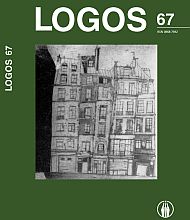Albertas Didysis ir Filosofijos Cenzūra
Albert the Great and the Censorship of Philosophy
Author(s): Dalia Marija StančienėSubject(s): Philosophy of Middle Ages, Philosophy of Religion, History of Education, 13th to 14th Centuries
Published by: Visuomeninė organizacija »LOGOS«
Keywords: Albert the Great; Latin Aristotelianism; Averroism; Scholasticism; Syllabus;
Summary/Abstract: The article analyzes the causes of 13th century university crisis which was provoked by Averroes’s commentaries on Aristotle’s treatises studied in the Faculty of Arts of Paris University. Translated from the Arab sources, Latin texts of Aristotle were quite popular in cathedral and monastic schools. Albert the Great fought the Latin Averroists attempting to Christianize the teachings of Aristotle. In the Latin Aristotelianism the majority of theologians saw danger to the foundation of Christian doctrine. As an ardent partisan of Augustinianism the bishop of Paris Stephan Étienne Tempier was strongly opposed to any studies of Aristotle’s philosophy. In 1270 he issued ordinance prohibiting thriteen statements to be promulgated in the university. In 1277 Tempier published Syllabus listing 219 prohibited statements and naming Sigerus of Brabantia and Boethius of Dacia as Averroist leaders. The appearance of Syllabus revealed the crisis of Scholasticism.
Journal: LOGOS - A Journal of Religion, Philosophy, Comparative Cultural Studies and Art
- Issue Year: 2011
- Issue No: 67
- Page Range: 65-76
- Page Count: 12
- Language: Lithuanian

